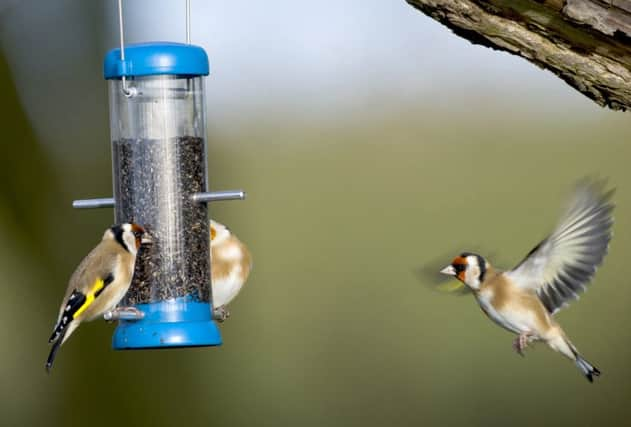Milder UK autumn weather good for goldfinches and small birds


More than 420,000 people across the country took part in the conservation charity’s Big Garden Birdwatch in the last weekend of January, recording 6.7 million birds visiting their gardens or local park.
There was a surge in sightings of goldfinches, long-tailed tits and coal tits, with good weather last summer helping deliver a successful breeding season for the birds to swell their numbers.
Advertisement
Hide AdAdvertisement
Hide AdThere was mild autumn and winter weather in the run-up to the survey, making it easier for birds to find food and helping more survive the winter.
Sightings of goldfinches were up 11 per cent on the previous year, according to the survey, while long-tailed tit sightings were up 16 per cent, coal tits were up 15 per cent and blue tits up 5 per cent.
There was also a 5 per cent rise in sightings of greenfinches, which was welcomed by conservationists as the birds have suffered a 58 per cent decline since the survey began in 1979.
However, there was a fall in records of blackbirds, with sightings down 18 per cent, and robins, which were down 12 per cent compared with last year. Wren sightings were also down, by 11 per cent.
The milder winter weather at the time of the survey could mean birds were less reliant on garden feeders because there is more food in the wider countryside, with potentially fewer birds visiting gardens as a result. But the RSPB said that robins and wrens did not have a good breeding year last year, and their numbers may be down overall.
RSPB conservation scientist Daniel Hayhow said: “The rise in sightings of goldfinch, long-tailed tit and coal tit, along with chaffinches and greenfinches, goes to show that in the absence of cold weather they can survive the winter months in good numbers.”
He said people will have noticed the weather this winter – before the “Beast from the East” and other snowy, cold storms blew in last month – was slightly warmer than usual and garden birds will have felt that too.